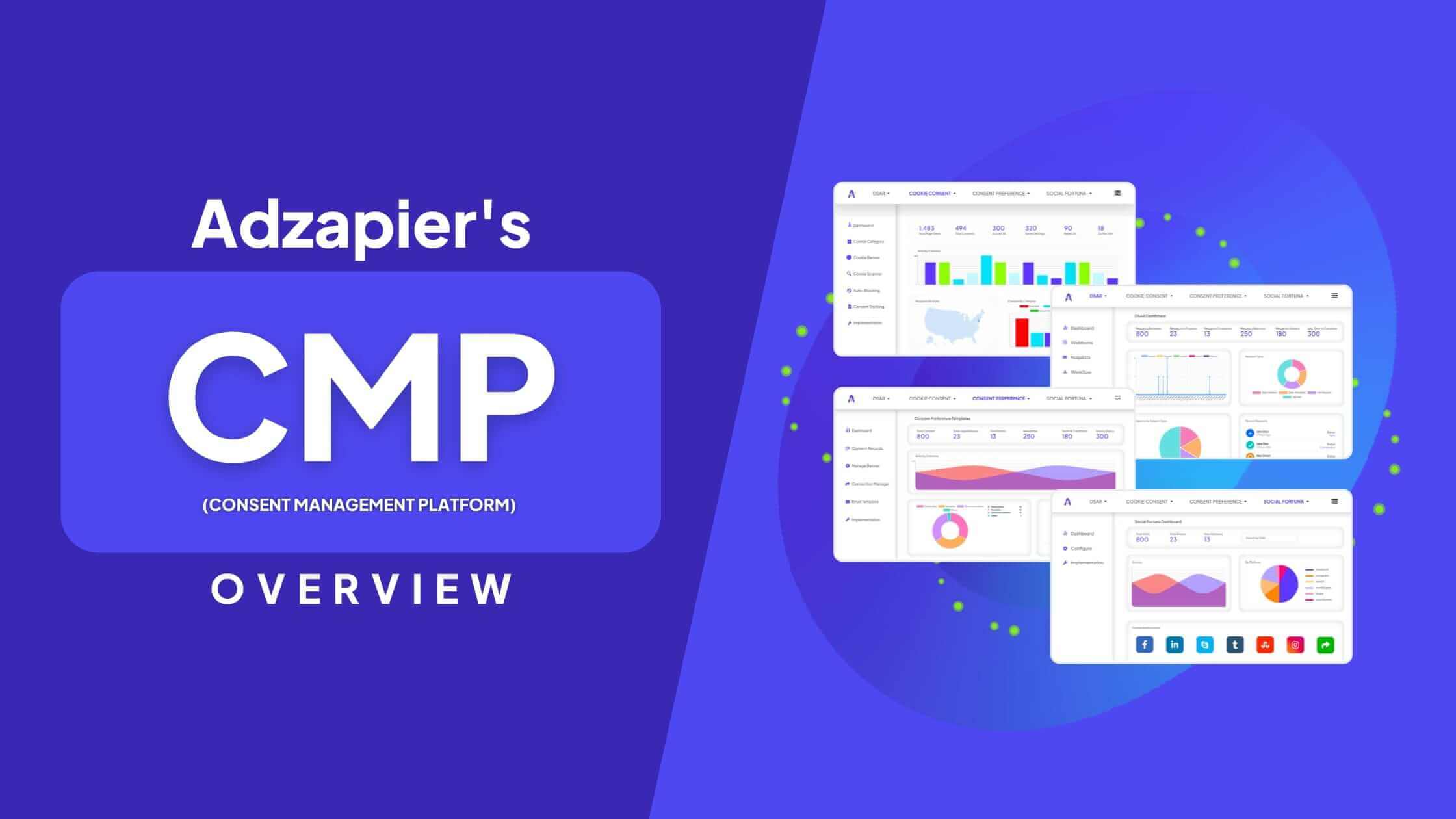In this modern day and age that is characterized by a greater push towards global connectivity and connected technology, the topic of data privacy is gaining traction more than ever.
Businesses and individuals often find themselves at odds regarding this contentious topic, as legislators around the world are drawing up regulations to boost data security. In such a situation, it’s up to businesses to collect data they use for personalizing the customer experience and deliver a tailor-made product. Ideally, it’s one that will help them grow while benefitting the end user as well.
Several technological innovations are being made daily. Their sole aim is to boost data privacy and bridge the gap between businesses and individuals regarding data protection. A consent management platform is one example of cutting-edge tech that is revolutionizing the data privacy sector.
Companies like Adzapier are going that extra mile to cement the gap between businesses and individuals. Here, we will be taking a close look at a consent management platform, or CMP software, and the significance it has.
What is a Consent Management Platform?
A CMP is software that allows businesses to collect, store, and process customers’ data via cookies in accordance with data privacy laws like the EU’s GDPR. This data can be used for marketing purposes without actually compromising the client’s privacy. From a customer’s point of view, such software allows them to determine which data bits they are comfortable with being collected, and ones they are not. A consent management system helps manage various notices and propagate them through the necessary and relevant channels.
A consent management platform can be classified as a collection of three individual tools that perform their respective activities to ensure seamlessness and compliance.
Cookie Consent Management
You may be familiar with the concept of cookies as small data packets that are collected by websites when an individual visits them for whatsoever reason. Well, there must be some systems in place that govern these cookies, and a cookie consent manager does just that.
This is the tool that holds the end consumer’s preferences regarding the collection of small packets of data, or cookies, regarding them. These systems help businesses achieve cookie compliance with several international and domestic regulations as well, and bring several advantages to the table as well for any business that employs them.
Consent Preference Management
A comprehensive enterprise privacy management software that helps organizations operationalize compliance and privacy by design. It allows you to manage all of your data privacy, information governance, and security policies in one place, so you can enforce them consistently across your entire organization.
Consent Preference provides a place to collect and synchronize data as a single source of truth in a centralized, audit-proof system. Allows you to control how your users are presented with data choices and privacy in all areas of your data ecosystem.
DSAR
The third component of a CMP, DSAR is a tool that helps with compliance more than anything else. Expanded as Data Subject Access Request, this is a feature that has been awarded to individuals by the GDPR. It enables them to request businesses to supply them with information regarding the individual data that they possess, where the data is stored, how it is being used and with whom they share it.
A DSAR system can be used at the end of the business to automate the process so that they can respond to the customer’s requests and help with compliance Not just GDPR but all US data privacy laws as well like CCPA, CPA, CPRA, VCPA, etc. This helps save time and cost and makes the overall process seamless.
The aforementioned trio makes up the consent management platform, and there are several advantages that these systems offer. Let us take a brief look at them as well.
- A consent engine automatically tracks the location where the access is being made and collects the necessary data in accordance with the laws of the land without calling for external interference. This helps online businesses attain their growth targets without compromising compliance.
- Having such a system in place creates an air of trust between the brand and the user as they would be sharing only what they want to, and this voluntary act would greatly help in creating lifetime value and loyalty. This reduces the risk of data leakage as well while boosting compliance metrics.
- Having good CMP software in place ensures that the business receives the requisite data without having to compromise data security or risk failing to comply with data protection laws and regulations like GDPR.
Final take:
Since data privacy is mandatory by law, it is required by all digital businesses to comply with these laws and a CMP mediates this process, with a SaaS solution which in turn builds a stronger long-term bond with consumers and saves them from hefty fines.





























